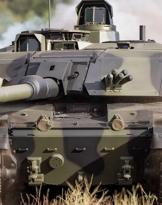Despite international sanctions imposing a ban on supplying arms to Iran, Russia appears to be willing to proceed with the sale of the advanced S-300 ground-to-air systems worth 800 million dollars.
They added a few hours ago from the Pentagon to Fox News - "We have long expressed our concerns about the news of a possible sale of this missile system to the Iranians".
Russia, along with the United States and other countries, was the protagonist of the nuclear agreement signed with Iran on July 14 in Vienna and that, it should be remembered, maintains the arms embargo for another five years. The specifications of the S-300 missile system would not, technically, be included among the systems prohibited by the United Nations, but the US opposes the possible sale, judged as imminent.
According to Reuters, Iran could sign contracts for the acquisition of four Russian S-300 systems within the next week.
The contract is ready - Iranian Defense Minister Hossein Dehghan said a few hours ago - we will go to our Russian friends next week to ratify it all.
They add from the Pentagon - "We have already presented our objections to this sale last April, while Secretary Kerry had the opportunity to raise these concerns during a recent conversation with his Russian counterpart."
The nuclear deal seems to have helped to further tighten the ties between Russia and Iran. On 24 July (ten days after the new provisions on the nuclear development program), the commander of the Quds Force, General Qassem Soleimani, would have gone to Russia for a meeting with Putin. That trip would have marked the beginning of a series of bilateral commitments between Iran and Russia. The Quds Force or Jerusalem Brigade, the special operations wing of Iran's Revolutionary Guard Corps, is held responsible for the deaths of hundreds of American soldiers in Iraq. According to the Pentagon, the Quds Force would support terrorist groups in Lebanon, Yemen and Iraq.
Beyond the contracts for the supply of S-300 systems, it is undeniable how solid at this time (even if the technical-military cooperation between the two countries began in the 1990) the relationship between Russia and Iran. Last week, for example, countries held joint naval exercises in the Caspian Sea. Last Monday, Russian Foreign Minister Sergei Lavrov hosted his Iranian counterpart Javad Zarif, a leading man in the nuclear negotiations.
Finally, it is curious to note the concerns of the White House, on the sidelines of the agreement between Iran and the six world powers. "While some of our partners wanted to abolish all restrictions, we were able to maintain the arms embargo for the next five years (in some cases eight), time deemed necessary by the International Atomic Energy Agency to comply with the roadmap of the checks required by the agreement ".
(photo: MoD Russian Federation)












